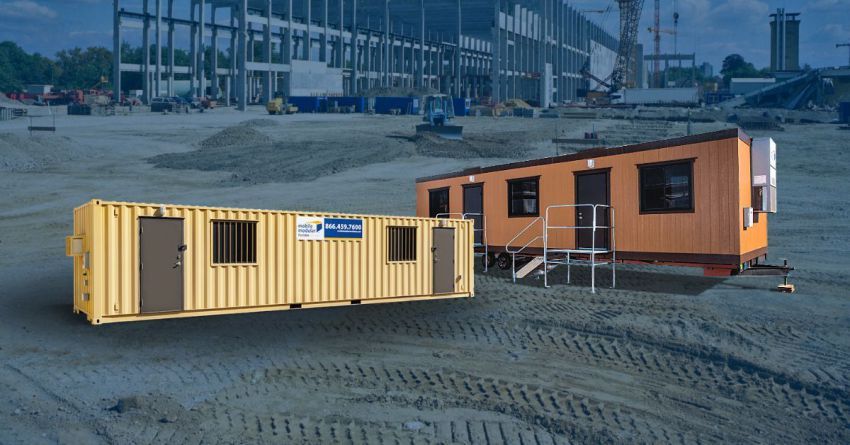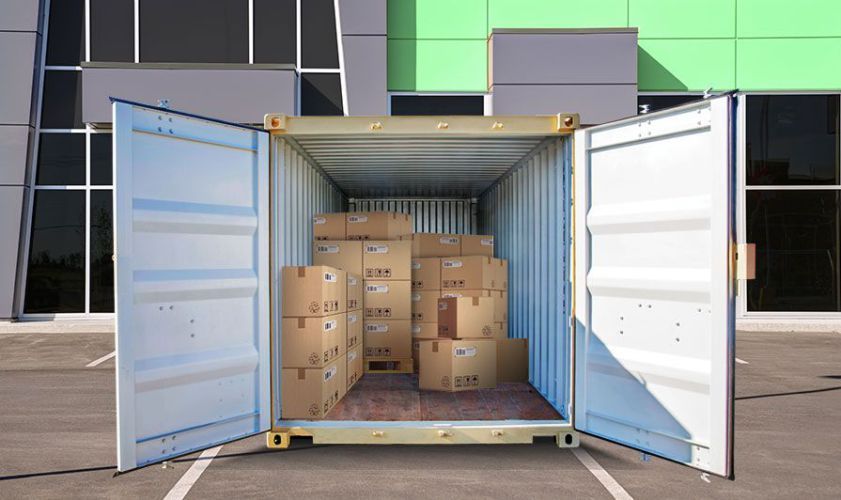- Rent, Lease, or Purchase
- |
May 16, 2018
Car Storage Containers: The Efficient, Affordable Way to Store Cars

Car storage containers are affordable, easy-to-install, and offer a ton of benefits to both personal users and automotive dealers. They are also a great way for auto dealers to avoid inventory challenges, which can lead to lost business opportunities.
Common Challenges Auto Dealers Face in Storing Cars
Lean vs. Peak Season
In the United States, there is a dip in car sales in the winter months, as many consumers don't want to brave the cold for the sake of buying a car. With a combination of nicer weather and tax refunds, the spring months lead to a surge in car demand.
These trends show that there is a definite seasonal pattern in the automotive industry. Lesser sales combined with the high expenditure of maintaining an inventory can be detrimental to business owners. On the other hand, when the demand picks up, not having enough inventory can significantly affect your revenue and hamper your growth opportunities.
Shipping containers to store vehicles provide inventory space that you can rent to tackle these fluctuations in demand.
Expensive Garage or Warehouse Space
Buying or renting regular warehouse space requires a large capital upfront. The cost of leasing warehouse space for your vehicles varies by a large margin. But typically, it would cost $1.10 per square foot (base rent plus operating expenses). If you were to rent 500 sq. ft, that would be $550 a month.
Of course, having your own container warehouse would be ideal. But building a structure requires a lot of money and time, and can disrupt your existing business. Besides, you don't want to build a large warehouse and have a lot of that space empty during lean seasons. So, how do you invest in efficient car storage space?
A shipping container provides you with flexible rental space to store your cars and helps you overcome cost challenges.
Can You Store Your Car in a Shipping Container?

There is enough room in shipping containers to store a variety of items that can include your car, accessories, and other essentials.
ISO standard shipping containers come in lengths ranging from 10 feet to 40 feet. A general-purpose container is 8.5 feet (2.59m) high and 8 feet (2.43m) wide and comes in two popular lengths-20 feet (6.06m) and 40 feet (12.2m).
A regular 20 ft. container can hold one car. A modified 20-feet container can store a maximum of two vehicles. In comparison, five-passenger vehicles can fit in a specialized 40-feet container as it has an internal volume of 67.6 cubic meters or around 2387 cubic feet. For SUVs or bigger cars, choose extra tall containers with the right height and storage capacity.
Take a look at how much space shipping containers offer for various businesses, including automotive dealers.
How to Load Your Vehicle Inside Shipping Containers

Delivery executives first load the car on custom-built stands and then place it inside the container with a forklift. You can drive the vehicle in the container with the aid of a ramp. If you want to ship your car or store multiple automobiles in a container, consider seeking professional help.
This video shows an efficient way of loading cars into shipping containers.
Helpful Tips
Your car is completely safe in a shipping container when stored properly. When you ship the vehicle, always ensure adequate ventilation inside the container. A lack of enough vents can cause condensation of air and lead to the accumulation of moisture.
This checklist can ensure that your vehicles remain safe:
- There is a plywood or timber barrier around your automobile that helps it separate from other items.
- You have drained the fuel and disconnected the battery and alarm system.
- You have blocked the wheels of your automobile at the front, back, and sides with wooden blocks or wheel chocks.
- You have strapped your car with ratchet straps and secured the straps at heavy lashing points located on the bottom of the container.
Looking to buy new or used containers to store cars?
Read this comprehensive guide on buying containers. It explains risks, important factors, where to buy containers, and has answers to frequently asked questions.
Benefits of Car Storage Containers
Cost-Efficient

Shipping containers are an affordable storage solution. They are more economical than building a permanent warehouse or garage.
Portable
You can deliver your vehicle easily to your desired location whenever you require. A trailer can transport shipping containers containing multiple vehicles.
Quick Installation
Once your vendor delivers the container, you are able to use it immediately instead of a permanent building, which can take up a lot of time for construction.
Highly Secure
Shipping containers are made of Corten steel and the doors have a secure latch that can protect your vehicle from dust, hail, exposure to the sun, theft, and tampering. Don't worry about leaving cars at a remote location - you can place the container right next to your office or at your site.
Easy to Maintain
Once you have set the container in place, you can quickly drive in and out with the help of a ramp. Add a layer of protective coating to your container to prevent rusting.
In sum, shipping containers offer an efficient solution for car storage. They are less expensive than usual warehouse space, can fit in multiple vehicles, and provide high security.
You can also ship your car to various locations as a container is highly convenient for transportation and delivery.
Frequently Asked Questions
Can You Store a Car in a Shipping Container?
Shipping containers are sturdy, compact, and allow you to store your cars at a much lesser cost than regular warehouses or garages. Be sure to follow basic precautions like safe parking, removing fuel and battery, and proper ventilation.
How Many Cars Can a 40 Ft. Container Hold?
A standard 40 ft. container can store two cars with ease. A specialized 40-foot container can hold up to 5 medium-sized passenger vehicles.
Can Two Cars Fit in a 20 Ft. Container?
A regular 20-foot container fits only one car. A maximum of 2 passenger cars can fit inside a specialized 20-foot container. If you have a larger car, you may require more space.
What Precautions Do I Take Before Storing Cars in Shipping Containers?
You must store your car away from dust, heat, and excessive moisture, so ensure you have the right ventilation systems in place in the container. To deter vandalism and theft, install high-security locking systems.
Related Blogs



Subscribe to Our Blog
Enter your email address to subscribe to the blog and receive the notification of new posts by email.
Thank You for Subscribing to Our Blog!
Stay tuned for upcoming emails with valuable content that we hope will enhance your experience with our brand.
Both Pardot and mg360 form submissions failed.
